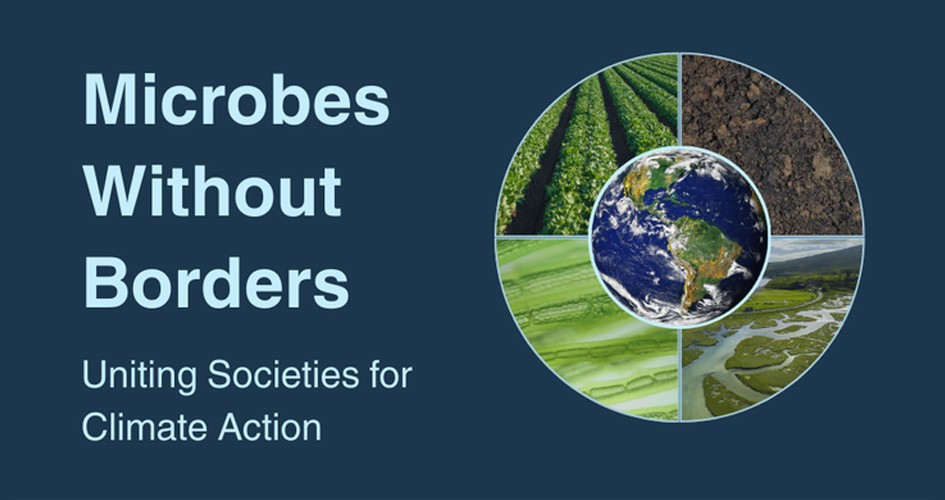
Published across 6 leading scientific journals, the strategy charts a path to integrate microbial science into global climate solutions.
Embargoed Until: 11:00 am ET, Tuesday, September 23, 2025
Washington, D.C. – In a bold step toward climate action, leading microbiology societies and organizations have unveiled their first joint global strategy to harness the power of microbial science in addressing the climate crisis. This landmark strategy has been published across 6 scientific journals, including FEMS Microbiology Ecology, mBio, Microbiology Australia, Ocean-Land-Atmosphere Research, Sustainable Microbiology and The ISME Journal.
On May 23, 2025, leaders from microbiology organizations from around the world gathered in Washington, D.C., for the Global Strategy Meeting on Microbes and Climate Change. The goal was to unite behind a single, strategic vision for integrating microbial science into climate policy, innovation and public discourse. While microbes play essential roles in carbon cycling, soil health, ocean systems and more, their impact has long been overlooked in climate models and solutions. This inaugural gathering marked the launch of a global alliance of microbiology organizations dedicated to changing that narrative.
The meeting identified 4 major principles to guide the path forward:
The strategy is more than just a roadmap; it’s a call to action. It invites policymakers, industry, funders, other microbiology organizations and the public to recognize microbes as vital allies in the fight against climate change, while charting a clear course for microbiology organizations to lead by example.
As a next step, the partners are moving to implement the strategy, beginning with the formation of a global coalition. They also commit to raising awareness and communicating about the importance of microbes for a healthy planet and a sustainable future.
Participating societies and organizations include:
Founded in 1927, IUMS is a prestigious Union that has been serving microbiology for nearly a century. IUMS brings together the microbiological societies of the planet, facilitates scientific interactions, fostering and promoting international exchange, dialogue, and collaboration amongst the international community of microbiologists involved in the discovery and applied sciences as well as in development of policy. IUMS uses the input from microbiological societies to generate a vision and shape the future.
| Read the Editorial | - | See Strategies |